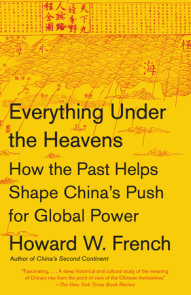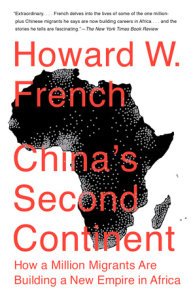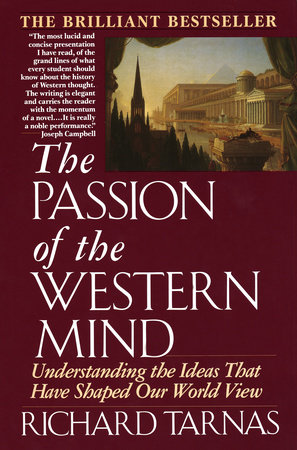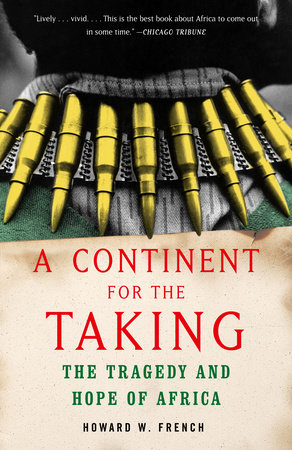

A Continent for the Taking
By Howard W. French
By Howard W. French
By Howard W. French
By Howard W. French
Category: African World History | Domestic Politics | World Politics
Category: African World History | Domestic Politics | World Politics

-
$20.00
Apr 12, 2005 | ISBN 9781400030279
-
Dec 18, 2007 | ISBN 9780307424303
YOU MAY ALSO LIKE
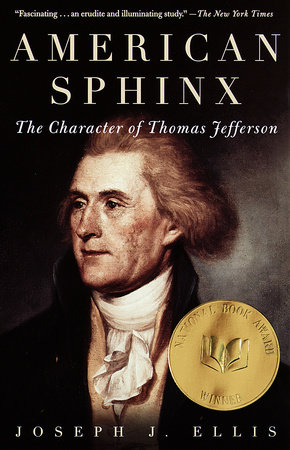
American Sphinx
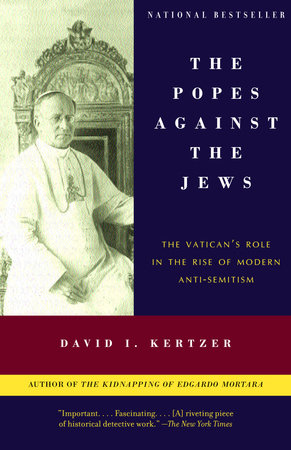
The Popes Against the Jews

The Fractalist
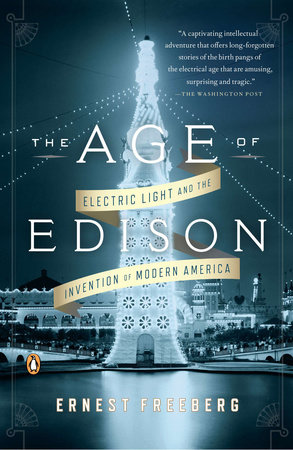
The Age of Edison
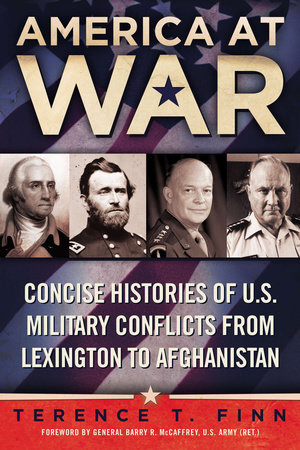
America at War

The Gamble
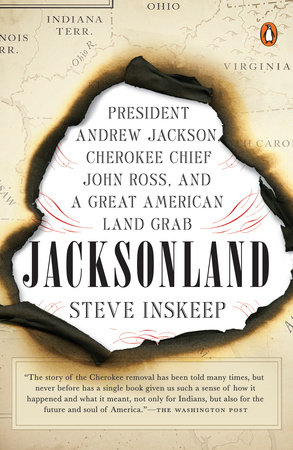
Jacksonland

The Balfour Declaration
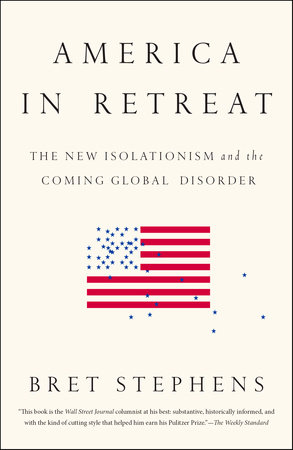
America in Retreat
Praise
“Lively . . . vivid . . . This is the best book about Africa to come out in some time.” –Chicago Tribune
“An often riveting eyewitness account of the chaos enveloping West Africa in the 1990s.” –San Francisco Chronicle
“Vivid, disquieting. . . . French’s engagement with the continent goes far deeper than most Africa-based correspondents.” –Washington Monthly
“Remarkable. . . . This deeply empathetic account of a region in crisis deserves to be read widely.” –Foreign Affairs
“[French’s] skill as a writer — in particular his telling anecdotes, fascinating historical narratives and prescriptions for a complex continent he clearly loves — is compelling. . . . He succeeds brilliantly in helping readers understand the continent and its people.” –The Globe & Mail (Toronto)
“Exhilarating for its frankness. . . . A triumph of passionate reporting.” –The New York Review of Books
“A passionate, heartbreaking, and ultimately heartbroken book. . . . [French] has a deeper and more profound connection to the continent than most journalists.” –The Nation
“A brilliant and nuanced meditation on the complexities of contemporary Africa. Essential reading for those of us who live Africa and for all those who wish to gain a fuller understanding of a continent that is sprawling, mysterious, and endlessly fascinating. Howard French’s voice is both fresh and enlightening.”–Henry Louis Gates, Jr.
“Persuasive. . . . The tone is grim, but French also finds an unquenchable African spirit.” –The Washington Post Book World
“Even when you’ve been there or know the basic facts, Howard French takes you to Africa in a way you’ve never been taken before. His superb writing, his keen insight and passion-driven analysis combine to make A Continent for the Taking a great read for those who find the continent as fasinating as he does, as well as for those who need to know why we do.” –Charlayne Hunter Gault , author of In My Place
“French gives us the context necessary to understand Africa’s current problems. . . . Broad-ranging. . . . Passionate.” –American Prospect
“French’s great advantage in telling his tale is his depth of perspective. . . . Rare is the book on Africa that gets passed around among policymakers in Washington–we can only hope this becomes one of them.”–St. Petersburg Times
“Many Western narratives tend to exonerate the West for Africa’s seemingly endless woes, placing blame squarely on the continent. Some African accounts tend to blame the West entirely. Howard French strikes the right balance, showing that Africa’s ills are rooted in internal and external factors but which are clearly linked.”–Ngugi wa Thiong’o, author of Weep Not, Child
“A harrowing picture of a continental catastrophe.” –Hartford Courant
Table Of Contents
Introduction
CHAPTER ONE
Prehistory
CHAPTER TWO
Leviathan
CHAPTER THREE
Plague
CHAPTER FOUR
The Golden Bough
CHAPTER FIVE
Greater Liberia
CHAPTER SIX
Falling Apart
CHAPTER SEVEN
Where Peacocks Roam
CHAPTER EIGHT
Castles in the Sand
CHAPTER NINE
Tough Love
CHAPTER TEN
Long Knives
CHAPTER ELEVEN
Le Roi Est Mort (Long Live the King)
Notes
Acknowledgments
Index
21 Books You’ve Been Meaning to Read
Just for joining you’ll get personalized recommendations on your dashboard daily and features only for members.
Find Out More Join Now Sign In







